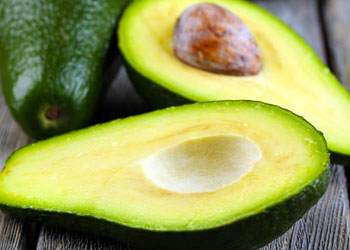Short Articles on Health Care
 “My Heart is Broken...”
“My Heart is Broken...”
In the old biomechanical model days, it was thought to be impossible for the emotions to seriously affect the body. Your body got old, got sick or wore out, a purely physical situation.
Since the 1990’s a condition called “Broken Heart Syndrome” has been an accredited and acknowledged illness with very real symptoms and consequences.
Broken Heart Syndrome occurs after severely stressful situations like the death of a loved one, a break-up or a rejection by a partner, betrayal, financial stress or constant unremitting stress. Even a positive stress, like winning the lottery, can trigger it.
As described by a sufferer, the condition feels as if “one is being torn in two”, and as if one can quite literally feel one’s heart breaking in one’s chest.
Usually it is a transient condition, characterised by acute congestive heart failure, acute changes in blood pressure and abnormal heart rhythms: it can occasionally lead to long-term cardiac issues, which may eventually lead to death. Like the storm of acute emotion that has triggered the condition, it will usually dissipate, trickling down to a sensation of exhaustion and despair.
As a homeopath, one of the most useful sections in our reference literature is one titled “Ailments from...”, and the subsections most relevant to “Broken Heart Syndrome” are “disappointed love” and “grief”. A number of remedies spring quickly to mind, the general theme being that of people who love deeply and feel deeply, and who feel as if a vital part of them is lost forever, when they are emotionally hurt and insulted. These people do not recover quickly from hurt and sometimes carry the consequences of that hurt with them until they die.
Aurum is a remedy for very idealistic people who have “lost their mojo” and can help them to regain their perspective when they are despairing, heart-broken and at their wit’s end. Digitalis will be useful for the person who is struggling with a slow pulse, breathlessness and swollen feet after a severe loss.
And Staphysagria will help the person who has hidden their pain from all around them, and now has to acknowledge their grief and rage, often in an abusive or cruel relationship. These are just a few of the remedies I can use in these kinds of situations.
All these remedies will help deal with the “Broken Heart Syndrome” and can help to avoid long-term consequences of breaking one’s heart, can sometimes even help to avoid getting to that extreme state and allow us to re-balance and start again.
 Wellness versus Lack of Illness
Wellness versus Lack of Illness
“I'm fine, but...” is the statement I most often hear in my business. This is no real surprise to me, as I have met very few completely healthy people in my life. And in my business, that of wellness and homeopathy, things should be different. So what does that “but” actually mean?
To be truly well, one should be able to wake up bouncing with energy and keen to get to grips with one's new day. One should sleep well and refreshingly, and wake easily without grogginess.
One's mood should be fairly even and one should be able to cope with stresses, even extraordinary stresses, fairly well.
Wellness also means not having recurrent infections that nobody really understands and one just can't seem to shake off, and being in control of one's diet and exercise levels to support oneself in the life situation that one is living in. And of course, knowing how to balance and fix things through use of supplements, remedies, medicines and therapies when it becomes necessary.
True wellness is much more than fulfilling the requirements for good health that are commonly accepted in general society. True health means achieving a feeling of satisfaction and well-being in all spheres of one's life, the physical no more important than the emotional, the mental or the spiritual aspects.
In the following short articles I would like to explore the vitamins and other supplements and their positive and negative effects on our well-being and general state of health. It should be understood that this is introductory health education and that there is so much more to these topics than is discussed here. Also it should be accepted that these substances are best used under professional guidance and can be potentially dangerous in some cases and under certain circumstances.
Back to Top
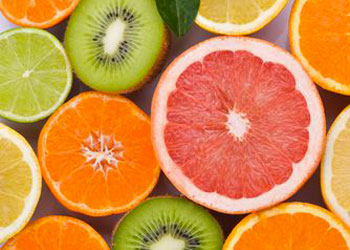 Vitamin C
Vitamin C
No 1 in the Supplement Game!
Vitamin C was not only the first vitamin to be “discovered” in the early 20th century, it was the reason that the idea of “vitamins” was proposed at all. Whilst doing research into the disease scurvy and it's treatment, vitamin C was discovered and a whole new branch of science started. As it is present in almost all fruit and vegetables, it is easy to eat enough foods to supply one's needs.
Vitamin C is the most wonderful and versatile of vitamins and affects almost every part of your body. Whether your teeth are feeling loose and sore, your joints and bones are achey or you suffer from varicose veins, it will do the job. It strengthens the collagen fibres that make up tendons, ligaments, veins and arteries and helps to forms good strong bones.
When you're feeling low and a bit down, it's a good remedy to reach for as well. It's part of the energy production cycle and the chemical processes producing dopamine, the “feel-good” neurotransmitter, in the body. It can also help boost mood by increasing the production of tyrosine, an amino acid the body needs for stable mood and thyroid function.
Acting as an anti-oxidant, vitamin C is thought to help clean heavy metals out of the system, and can be used for that intravenously during cancer therapy. It also helps to “clean house” generally in the circulatory system, removing deposits and debris that will later cause more trouble. It is very effective as an immune system booster, boosting white cells and their disease fighting abilities and strengthening cell membranes to help fight off viruses.
If there is one supplement anyone should take on a regular basis, vitamin C is it. No matter what your age or health, a little bit extra will make whole lot of difference in the long run!
Back to Top
 Vitamin A
Vitamin A
“A” is just the beginning...
Vitamin A affects everything throughout life, from the development of the fetus right through to some of the commonest forms of cancer. Although easily obtained by eating enough dairy products, liver, eggs, yellow and orange vegetables and fruits, as well as dark green vegetables, vitamin A absorption is dependant on enough fats being eaten with these foods. Our low-fat and fat-free diets sabotage our vitamin A levels and leave us open to disease.
Being one of the few fat-based vitamins, vitamin A can accumulate in the body to toxic levels and needs to be treated with caution. In deficiency or excess it can cause fetal abnormalities That being said, it is just soooo important!
Proposed in 1917, vitamin A was named retinol due to it's effect on the retina of the eye: deficiency causes light sensitivity, night-blindness, dry eyes and eventual blindness if very severe. Soon the effects on skin and mucous membranes became known and today very high levels of vitamin A are often used to treat acne and stubborn skin infections.
Deficiency of vitamin A can contribute towards recurrent upper respiratory tract and bladder infections, but adequate amounts keep the immune system ticking over nicely.
Vitamins A and D work together to protect the lungs from TB, and will help to prevent permanent damage during an active TB infection. A deficiency also causes growth stunting and inadequate bone and dental enamel formation, resulting in osteoporosis, short stature and sensitive teeth.
As one of the most important anti-oxidant vitamins, vitamin A protects us from developing cancer, especially prostate cancer. It stops the DNA mutations that trigger “bad” cancer cells and makes those “bad” cells more open to treatment.
And if that doesn't convince you, vitamin A seems to be implicated in Alzheimers, schizophrenia, depression, autism.... and lots, lots more!
Back to Top
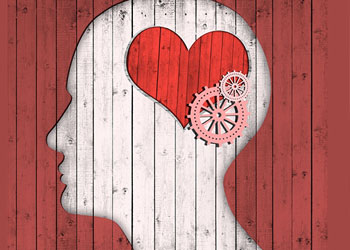 Health and Emotion
Health and Emotion
A Historical Perspective
The link between mind, body and emotions has long been understood to be the cause of disease and good health. This connection was routinely included in diagnosis by Ayurvedic practitioners, traditional Chinese practitioners, some ancient civilisations as well as medieval European doctors.
In Ayurvedic medicine which is more than 6000 years old, the different body and temperament types are known as Pitta, Vata and Kapha. A Vata type is inspired and creative, but suffers acutely from anxiety and stress. A Pitta type, although disciplined and logical, is hypercritical and perfectionist. Sweet, nurturing Kaphas suffer dreadfully from depression, lack of motivation and exhaustion.
Traditional Chinese medicine, only a mere 1000 years younger than Ayurvedic medicine, explains the links between emotions and illness in a much more direct fashion. Chinese medicine is based on the 5 elements theory and the equilibrium of complements, the concept that all the world, including us, is made up of and influenced by the five elements, and that for each part, substance or property of the body and mind there is an opposite helping to maintain the balance. The element of Fire affects the health of the heart and small intestine, and the emotions that are associated with their health are those associated with joy and happiness. Excesses or deficiencies in these will affect the health and functioning of these organs. So also is fearful Water responsible for changes in the bladder and kidneys, melancholy Earth for the health of the stomach, spleen and pancreas, angry Wood for problems in liver and gall bladder and sad Metal for issues in the colon and lungs.
Ancient civilisations put forward the theory of the 4 humours of the body, each affecting a different system and emotion. Hippocrates later formalised this into the 4 temperaments theory, each temperament associated with a certain pathology type and emotional make-up. Your Sanguine temperament was seen as sociable and hopeful, Choleric was ambitious but easily angered, Melancholic introverted and despondent and the Phlegmatic as relaxed, calm and unemotional.
This historical view across different civilisations, cultures, times and places has as it's meeting point the idea that the body cannot be separated from the mind, the emotions and the spirit. The understanding that illness can originate in a non-physical sphere is central to understanding why one person survives an illness and another doesn't and is slowly being understood as the way forward in healing and medicine.
Back to Top
 Wonderful Folic Acid
Wonderful Folic Acid
As young mothers, we all become aware of the benefits of folic acid. Whilst particularly protecting the developing baby from spinal and brain malformations, folic acid is a remarkable and vital vitamin for all of us. This member of the vitamin B family, although easy to come by, is low in a lot of us, from children and pregnant women to the elderly.
How many women take folic acid before and during pregnancy is unknown. What is known, however, is that supplementation of folic acid during pregnancy can decrease the possibility of spine and brain problems in the baby by more than 85%. As these form mainly in the first trimester of pregnancy, supplementation is best taken before and in early pregnancy.
Focussing on this aspect lets us ignore the other uses of this wonderful vitamin, but it's well worth realising that often, when supplementing for another condition, the addition of folic acid to the mix of supplements allows everything else to work so much better.
Anyone with cardiovascular problems can benefit from additional folic acid, as it helps to lower high blood pressure and reduces the risk of strokes. It also works in combination with B12 and iron to fight anemia which can stress the heart.
Low folic acid levels are implicated in depression, poor memory, confusion and Alzheimer's disease, as well as general confusion. And if you are keen to have a baby and things just aren't working out, healthy folic acid levels promote healthy sperm and eggs, as well as easier pregnancies and deliveries.
Folic acid is still used as a cancer prevention vitamin, but it is also known to help prevent the side-effects of other chemotherapeutic drugs like methotrexate.
Best derived from foods like leafy green vegetables, yeast, beans, fruits and organ meats, folic acid is very much the fix-it vitamin, and should get more respect and recognition for the huge role it plays in our lives.
Back to Top
 Arnica: Best For Bruises
Arnica: Best For Bruises
Who hasn't heard of putting Arnica cream on an injured or sprained ankle? Probably the most well-known homeopathic and herbal remedy in the whole complementary medicine “toolkit”, Arnica is a tried and trusted remedy for a whole range of trauma-related injuries. It's also completely underrated as to it's uses and effectiveness, some of which need a lot more investigation.
Arnica as a herbal extract or tincture must be treated with great care. It should never be taken internally, as it could cause internal bleeding and irritation of the mucus membranes. In the form of a cream or liquid application, it can be applied to any areas with bruising, pain, swelling or inflammation, but can still occasionally cause an allergic reaction.
Homeopathic Arnica can be taken internally as well as applied externally, and very rarely causes any bad effects. It can be used for all the same problems as the concentrated tincture, but should never be taken pre-operatively as this could possibly lead to increased bleeding during and after surgery.
Circulation problems like varicose veins and the discoloration of the skin around these veins, as well as swollen legs and overall water retention can be gently and effectively treated with Arnica.
Bruises, sprains, strains, over-used muscles, deeply inflamed joints and soft tissue will all benefit, even if only used a few times shortly after injury or after a surgical procedure. Arnica will shorten the recovery time and also allow the discoloration and bleeding to disperse faster. As an added benefit, Arnica helps to treat shock and general trauma and can be used to steady someone after an accident or a traumatic event.
On an emotional and also a physical level, Arnica will treat over exhaustion and trauma. It can be used as a tonic and a general pick-me-up, especially during and after a flu or cold, any illness or treatment form except for with patients already taking anti-coagulant medications.
Arnica patients feel bruised all over, but usually won't acknowledge that there is a problem. They usually refuse to see any type of doctor until they are forced to or are unable to carry on and ignore the problem any longer.
Back to Top
 Herbal Brain Boosters
Herbal Brain Boosters
As we go into the silly season with all it's stresses and strains, it's perhaps appropriate to discuss herbal helps for concentration and memory during this exam-packed period. It's also worth mentioning that just because it's herbal and natural, doesn't mean it's always harmless. All herbal products should always best be cleared either by a knowledgeable and well-trained professional in the field or a doctor, herbalist or homoeopath.
The two most effective concentration and memory aids amongst the herbs are Gingko biloba and Bacopa monnieri. Both of these are well understood and have withstood the test of time in terms of effectiveness and tolerance.
Gingko biloba is a living fossil originating in Asia, where it has been used medicinally for thousands of years. Gingko is a strong anti-oxidant that protects the brain and nervous system, whilst it increases the blood flow to all the extremities, as well as thinning the blood slightly. This allows for good oxygenation and detoxification of the brain and all the tissues in the extremities, whilst also working against the stress hormones that cause so many problems on so many other levels.
Gingko helps to maintain focus and concentration during exam times, but can also help to slow the progress of dementia in Alzheimer patients. It's also effective in treating bad circulation and chilblains in winter. Gingko should never be taken together with an anti-depressant or any type of blood thinner, as it could cause dangerous or unpleasant side-effects. One should also stop taking Gingko a week before any major surgery to lessen any possible risk of bleeding.
Bacopa is an Ayurvedic herb used for thousands of years in the treatment of anxiety, depression and stress. Effective also in the treatment of learning problems, deficient memory and concentration issues, it can be used for helping not only to acquire new memory of work studied but also to retain more of that memory. Bacopa is presently being researched as it seems to be reasonably effective in fighting the onset of Alzheimers, and in slowing the progression of the illness. This effectiveness is at least as high as the effectiveness of any pharmaceutical drugs available at present, with only a bit of dry mouth, nausea and slight muscle fatigue as possible side effects.
It is always reassuring to know that we have had the same problems for so long, that there are tried and trusted herbal treatments out there for us to use, and that we are not limited to only one way of dealing with our various ills.
Back to Top
 Dem Bones...
Dem Bones...
We live in a world that places such difficult choices and contradictions in front of us. Vitamin D and it's place in our lives is just another such difficult choice to juggle and with which to become comfortable. A complicated vitamin, it isn't strictly seen as being essential to us, as we can actually make our own vitamin D under the right conditions, instead of really having to supplement it or eat enough foods rich in vitamin D. The element in this equation which is very essential, however, is sunshine, and lots of it.
The body makes vitamin D out of cholesterol stores deposited under the skin, when the skin is directly exposed to sunshine. In our world of sun protection, sun avoidance and mainly indoor lifestyles we just don't get enough sun. But how far can we actually go with this? Too much sun, we are assured, will result in skin cancer. On the other hand, too little results in vitamin D deficiency with it's many and various problems.
If you are experiencing any of the following, you probably need vitamin D: frequent colds and flus, asthma, bone and muscle pain as well as bones that are softer and more prone to fractures, depression, unyielding obesity, certain cancers and decreased libido levels.
So although it seems that vitamin D is vital to so many health issues and functions in our bodies, we need to avoid our most important source to avoid damaging other tissues.
So how do we then compensate for this? Obviously a limited exposure to the sun is vital. It's good for our mood and general feeling of well-being, but we need to treat the sun with caution and respect. So then we need to increase our dietary intake of vitamin D rich foods, like sprouts, green vegetables and mushrooms, oily fish like salmon, sardines and tuna, liver and eggs. If we can't manage to get what we need by means of diet, then we need to supplement with either vitamin D or cod liver oil.
Once again we need to be careful, as vitamin D is one of the few vitamins we can overdose on, although we would really need to work hard at it to do so.
Vitamin D is being researched in depth at the moment, and more and more information will emerge to tell us how vital it is for our well-being. What's obvious though, is that this vitamin should never be ignored or missed out on.
Back to Top
 Dem Bones Too
Dem Bones Too
We have all heard of the benefits of having enough calcium, but what do we actually know about this miracle mineral and what it does for us?
“Drink lots of milk to make your teeth and bones strong,” we're told by our mothers. They're quite right, of course, just as they usually are. But it is a lot more complicated than that, calcium being a sort of “manager” mineral that takes part in a whole lot of chemical processes.
Oddly enough, those strong bones are a side effect of efficient calcium storage (99% of all the body's calcium) and of getting enough calcium, but the body has much more important uses for that remaining 1% of the calcium.
The body needs to have absolutely constant levels of calcium in the blood or else quite a few bodily functions are affected. Calcium stored in bones can be released into the blood when it is needed. So although our bones benefit from a good supply of calcium, the remaining 1% of calcium in our blood is the most important, maintaining the cardiovascular system and the muscles, transmitting nerve signals and helping to produce hormones.
The most obvious signs of calcium deficiency are problems with bones, teeth and muscles. These can show as caries in the teeth, osteoporosis or rickett's, muscle spasm or weakness, or other related problems. Osteoporosis is one of the commonest health problems in postmenopausal women and can lead to easy fracturing of bone, high levels of pain and a general feeling of weakness. Women most often are deficient in calcium, as are also children and especially adolescents, who need more on average because of growth and activity levels.
Other health issues that benefit from good levels of calcium are high blood pressure and colon and rectal cancers.
Calcium is abundant in dairy products, especially low fat dairy, in green vegetables, certain fruits, nuts, seeds and fish, and is often added to cereals and drinks to fortify them. Best absorbed from the diet or from a lower dose supplement taken either spread out during the day with food or on an empty stomach last thing before bed, calcium is also regarded as nature's tranquilliser, allowing for better sleep and greater relaxation at night.
As a supplement it should be avoided by people who suffer from kidney stones, prostate cancer and hyperactive parathyroid glands, but with the addition of regular vitamin D, it can protect us from lots of pain and suffering later in life and keep us on an even keel emotionally.
Back to Top
 Vitamin B5: The Ever present Vitamin
Vitamin B5: The Ever present Vitamin
Vitamin B5 is known in different forms as pantothenic acid or calcium pantothenate. “Pantothen” means “in everything” or easily available, and pantothenic acid is present in virtually every food type. Amongst the most available of all the vitamins, B5 is water-soluble and so is not easily stored in the body. This means that it needs to be frequently and plentifully replenished so that it's very important functions in the body can be maintained.
Although a minor and supposedly unimportant vitamin, B5 is essential in maintaining a variety of hormonal and neurological processes in the body. B5 is so easily sourced that upper limits for it's intake are not known, no overdose and also no deficiency levels are known. The only thing for sure is that high doses of B5 are not harmful and could potentially be beneficial for a whole range of health issues.
On a purely physical level, high doses of B5 can help the pain and stiffness in rheumatoid arthritis, especially early in the morning. It can also help reduce that post-exercise stiffness and burn when starting a new exercise regime or going to a higher level. It's also an important part of the energy production cycles and so can relieve extreme fatigue, irritability and depression.
B5 helps to form acetylcholine which is responsible for muscle function, memory, concentration and headaches. It also helps to make coenzyme A which helps to keep the body sensitive to insulin, to produce a balanced set of sex hormones and enough stress hormones to enable proper functioning under almost all levels of stress. Coenzyme A helps to transport fats in the blood and therefore balances cholesterols and triglycerides, leading to a healthier circulatory and liver system.
Often used to treat exhaustion from stress and adrenal fatigue, B5 should not be ignored in favour of better known vitamins. On a lighter note a deficiency can also possibly be linked to skin problems, greying hair and an inability to lose weight.
The good news is, of course, that B5 is in almost every single food and it is very difficult to run low on it. And if you suspect you are low, the best sources are meat, eggs, broccoli and avocados, whole grains, molasses and supplements.
Back to Top
 Vitamin B12
Vitamin B12
For Brain and Blood
How many of us have gone for those Vitamin B12 booster shots after a really tiring and stressful year? One of the easiest remedies for fatigue, stress and overall exhaustion, Vitamin B12 injections are frequently recommended and are amongst the most recognized of treatments amongst both practitioners and patients. The benefits are not as fully appreciated as they should be, however, as vitamin B12 affects some core functions of body and mind, and is not just a remedy for tiredness!
Luckily Vitamin B12 is synthetically produced, as historically the first and best source of it was liver, and very few people nowadays enjoy eating liver. Other sources are eggs, meat and fish, yeast products and some vegetables. Liver gives us up to a hundred times what almost any other source can, and so is definitely the best choice.
The benefits of this vitamin are mainly to the blood and brain systems of the body. Two different types of anaemias are treated with B12 successfully, namely megaloblastic and pernicious anaemias. Vitamin B12 was in fact “discovered” whilst searching for a treatment for pernicious anaemia, an autoimmune disease in which the gut is unable to absorb iron and B12 from food sources due to deficiencies in B12 and intrinsic factor. In megaloblastic anaemia the bone marrow just makes huge, badly functioning blood cells that crowd out the good cells and don't do any of the things they need to, like carrying oxygen...thus all the exhaustion and concentration problems.
The nervous system deficiency symptoms are a bit more subtle and also easy to confuse with problems of other origin. Tingling in the hands and feet, slight problems with memory and concentration, unstable mood and depression for no reason are the warning signs we need to look out for, but the extreme deficiency symptoms are truly alarming. These can be problems with nerve signals to the muscles and Alzheimers and these symptoms can be regarded as permanent. B12 can be used to protect brain and nerve function as well as treat.
But why do we get so low in our Vitamin B12 levels? Unfortunately there are so many reasons for the deficiency that almost all of us could experience it at least once during our lifetimes. Besides the obvious deficiencies due to too little intake, B12 absorption can also be limited by pernicious anaemia, low acidity in the stomach or surgical removal of the parts of the stomach and intestines that absorb the B12.
Another culprit is the host of chronic medications that are routinely handed out and which affect B12 levels, like metformin, proton pump inhibitors, some anti-epileptics and some ARV's. These patients should supplements with B12 under their doctors guidance.
Another culprit is excess alcohol intake.
Luckily most of the deficiency symptoms are quickly reversed by those pesky B12 shots, and if you can't handle those, there are oral supplement forms that work well.
Back to Top
 Don't Miss Out On The Exercise
Don't Miss Out On The Exercise
We all know that we need to exercise, but it's only in the last few years that research has proved that exercise is the only thing that we really shouldn't miss out on. One used to be told that the recommended amount was twenty minutes of moderate exercise three times a week, but it would seem that the beneficial effects of exercise are so broad and so deep-reaching that more is definitely better.
The obvious effects of exercise are the benefits to the cardiovascular system, the lungs and the muscles. Better levels of circulation and oxygenation of the tissues make one feel more energetic and help to increase one's stamina. Greater muscle tone and strength allows one to function better in the physical world and keep one's balance and co-ordination in great shape.
Other physical effects range from just making one look gorgeous, reducing high blood pressure and bringing down high cholesterol and blood sugar, helping to lose excess weight, keeping the joints moving and the tendons and ligaments stretched and flexible.
The less obvious physical effects are lower levels of chronic pain, better physical control and poise, fewer breathing complaints, less issues with prolapses and better digestive tone. A better sex life and increased libido, as well as less problems during pregnancy and childbirth are the logical consequence of decreased levels of sterility.
Emotional and mood stability are hugely improved by regular exercise, depression is softened and reduced; anger, violence and impulse control problems are brought under control and hysteria can be channelled into a more creative and rational force.
Concentration and focus improve when one's excess physical energy is used up. The majority of our activity nowadays is in the mental or head sphere, as we have “progressed” from living predominantly in the physical sphere to our “head” world. We have not in any way achieved any greater emotional stability than our predecessors, and we cannot ignore the lack of direction that our overwhelming “heart” energy can create.
The balance between physical, mental and emotional energy needs to be found and understood, before one can operate at one's best possible level. Exercise is possibly the simplest, most effective and the most accessible way of getting to that state of grace.
Back to Top
 More Laughter For A Healthier Outlook
More Laughter For A Healthier Outlook
“Laughter is the best medicine” we hear so often, but how many of us take that seriously?
Good emotional health is a topic people just don't talk about: we lower our voices and talk confidentially about this or the other person who has had an emotional or nervous breakdown, but always in the smug belief that this isn't going to happen to us. But why not and why is it actually so very bad?
Historically people had more leeway for behaviour that falls into the classification of aberrant behaviour today. Societal norms were stricter in some areas, but other areas, like quite literally talking to one's God or to another entity, were at various times more accepting than they are today. And people's need to control their lives so precisely nowadays has also spilt over into the picture that we have built that describes the best and healthiest of human specimens. Our image of ourselves has been influenced so extremely by what we have experienced from various sources of the media that we don't really ever take the opportunity or time to work out our own version of what and who we want to be.
This need to conform to an essentially alien concept of the ultimate human being is most probably our present form of socially acceptable madness. Humanity's saving grace is most definitely our ability to laugh. We find positive things in the middle of disaster, we laugh, often meanly, at things that skate the edges of normal. But at all times we laugh.
Laughter is an underrated form of therapy that lifts us out of our present state of disaster and on to another plane, where we can stand back and really look at our situation. Once one has laughed at something, it can never again be as threatening.
Physically the effects of laughter should not be underrated either. On a very basic level a good burst of laughter forces us to really breathe deeply, to clear out all the stale air sitting in the lungs and gets the heart beating faster and the blood moving. We use muscles that normally don't get much exercise, because laughter, like sneezing, is a whole body exercise. People who laugh more and who are happier get ill less often and tend to store up less emotional tension, as laughter stimulates a part of the brain that regulates our immunity and also decreases our fight-or-flight impulse, thereby bringing down the levels of our biggest stress hormone, cortisol.
So laughter is a survival tool that we humans have benefitted from for Millenia, we just have to accept it now as “the best medicine” and use where and when we may.
Back to Top
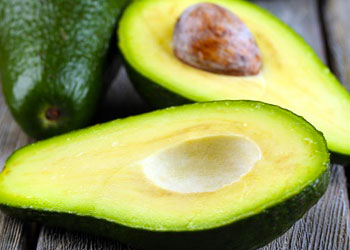 Niacin
Niacin
An incredibly important vitamin in South Africa
Vitamin B3 was originally discovered when researchers were looking for a solution to a disease called pellagra. Pellagra occurs in situations of extreme malnutrition and in areas where the main starch is maize. Vitamin B3 was originally named vitamin PP or “pellagra-preventing factor” but was later renamed niacin.
Easily obtained from meat, fish, chicken, dairy products, legumes and vegetables, in fact from anything that contains protein, niacin can also be made in the body, as long as there is enough of the essential amino acid tryptophan available from protein in the diet.
But what is Vitamin B3 good for? What does it do for us that we can't do without?
If one looks at pellagra, the deficiency disease associated with niacin, symptoms like diarrhoea, inflamed mouth and tongue, dermatitis and severe hyperpigmentation and thickening of the skin are common. Mental symptoms like dementia, delirium, anxiety, depression, concentration problems and amnesia are all possible. In terms of our South African context, niacin has long been used to treat high cholesterol and high blood pressure. It changes the proportional spread of fats in the bloodstream, lowering “bad” cholesterol and allowing “good” cholesterol to dominate. It also helps to treat hardening of the arteries by thinning and relaxing thick, stiff artery walls.
High blood pressure is a huge problem in people over the age of 40 in this country. Niacin is an effective way to treat this as it allows the peripheral arteries to dilate and so less strain is placed on the heart and blood pressure can decrease. In these ways B3 is useful to help maintain general cardiovascular health and to promote a better quality and length of life.
The many other benefits of niacin can best be summarised as “life improving” on almost all levels. Useful in treating migraines, rebalancing the hormones and increasing energy levels, niacin should rather come from protein sources rather than maize which has an unavailable form and so is not beneficial until treated.
When choosing vitamin B3 supplements, always take niacin rather than any other form of the vitamin, as this has the most dependable effect and has been most thoroughly tested. However, be aware of the temporary side effects... niacin gives one a temporary flush that disappears after about half an hour and will eventually resolve entirely. This can be a little embarrassing, but the benefits by far outweigh the temporary inconvenience.
Back to Top
 Stress: Challenger Or Destroyer?
Stress: Challenger Or Destroyer?
Are our lives anymore stressful today than they have been throughout the ages? Too often today we hear someone say that things used to be better in the “old” days, less stressful, more sparing of the individual and less dangerous on all levels. Depending on how far back one goes, those stresses were just as threatening to life, limb and happiness as our modern day stresses. Is being chased by a lion or wolf worse than being hijacked or mugged? Is not collecting enough food for a meal any worse than not being able to earn enough money to pay for that food?
Everyone perceives stress in a different way and the effects of it are as different as the stresses out there. Stress as a whole has been with us since the beginning of our species and most probably played a huge part in making us what we are today. Adaptation to events and circumstance arguably created the beings we are today and stress is a necessary stimulus for growth and development. So why do we whinge about it so constantly, why do we not meet it as a challenge and an opportunity?
Perhaps the worst loss to us as 'civilised' human beings is the loss of our ability to relax in a spontaneous, natural and guilt free manner. Indeed we often need to take classes in things like relaxation and meditation and only learn later on in life that it should be a normal and natural part of our cycle of achievement and recuperation. Often this knowledge only comes at the expense of our families, relationships and our health, and we gain it by virtue of pain and loss, instead of having it as a basic part of understanding how life should be lived.
Stress is the complementary aspect of relaxation, and we suffer from the one only by virtue of having too high a levels of the other. Essentially if we have enough relaxation, we can cope with the stress. Perhaps we need also to have enough stress to cope with the perods of relaxation, and we always need to remember that stress is the stimulus for growth and change and appreciate it for what it does for us.
Back to Top
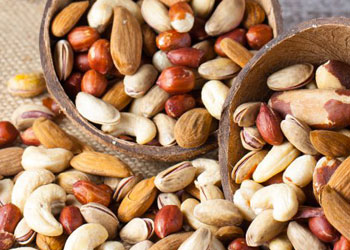 Vital Vitamin E
Vital Vitamin E
Vitamin E is one of the fat-soluble vitamins that we as graduates of all those low-fat cooking schools are generally deficient in. Being one of the triad of anti-oxidants that helps us to keep ourselves fit and feisty, it is essential for our daily and also long term well-being.
First investigated in 1938, vitamin E was then already discovered to be effective in the treatment of growth retardation of premature infants, and 10 years later it was found to be effective in the treatment of anaemias of newborn infants. This led to it being routinely added to all baby formulas since the 1960's which has virtually eradicated hemolytic anaemia in the newborn.
As an anti-oxidant, Vitamin E promotes quick and easy regeneration of tissue and is anti-ageing. So if you have little sores and injuries that just won't heal, you may be vitamin E deficient. It also is responsible for proper immune system response.
And when you're trying to get pregnant and it just isn't happening, Vitamin E may save the day! This may be for a number of reasons, as supplemental vitamin E can help with low sperm counts, problems with vaginal dryness and sensitivity during sex and to boost the sex drive.
Vitamin E is also part and parcel of the correct functioning of the nervous system, and a number of degenerative neurological diseases are thought to be at least partially due to a deficiency of the vitamin. These range from things like tingling in the fingers and toes to muscular weaknesses and failure, as in myopathies and ataxias.
Easily consumed from things like sunflower seeds, nuts and avocados, dark green and orange vegetables, wheatgerm and whole grains, in our world of the low-fat diet we often don't eat enough oils and fats to satisfy our needs. Vitamin E is also regarded as essential for good heart-health, and by removing all fats from our diets we also eliminate the essential healthy fats and worsen our problems on all fronts.
Vitamin E is great for us, whether we want to recover from a health challenge or just improve our standard of health and well-being, and although one of the earliest “discovered” vitamins, it is now being intensely researched for it's many possible therapeutic uses.
